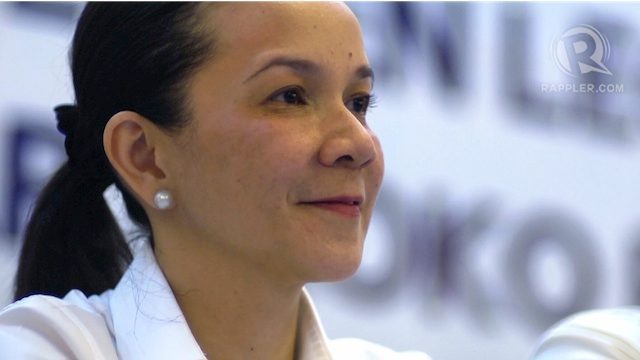SUMMARY
This is AI generated summarization, which may have errors. For context, always refer to the full article.
 “Dual allegiance of citizens is inimical to the national interest and shall be dealt with by law.”
“Dual allegiance of citizens is inimical to the national interest and shall be dealt with by law.”
– Article 4, Section 5, 1986 Philippine Constitution
In Rigoberto Tiglao’s Manila Times column “Citizenship by Convenience,” it says that Grace Poe Llamanzares chose to be an American citizen while she’s not even poor and that’s something that he just cannot take.
“By becoming senator and now lusting after the highest office of the land, Mrs Llamanzares is insulting our notions of country and nationalism,” Tiglao said in the column. It makes me wonder what nationalism means for someone like Tiglao, a former ambassador and an Arroyo underling.
I’m not campaigning for Grace Poe, but to be fair to all Filipino expats, I believe what Grace Poe did was brave. (READ: Grace Poe abandoned Filipino citizenship – Binay) 
For a rich kid to choose living on her own in the US without maids, a car, and with having to be a salaried worker, to do laundry, to cook your own food, all while you are trying to find yourself and your sense of purpose as a foundling is not easy. This, while trying to keep the Filipino culture alive among your family is admirable. (READ: Grace Poe: I’m a natural born Filipino citizen)
Migrating to the United States is far from convenient. Those who have it convenient are the political or politically-affiliated families who enjoy their vacations abroad paid for by public taxes, while owning land and mansions in the Philippines. They are the gods of the Republic.
Why US citizenship?
Filipino expatriates migrate for a myriad of reasons, but it is disappointing that a former ambassador would imply that the acceptable reason for abjuration of Filipino citizenship is when you are poor.
Expats choose US citizenship not simply because of Tiffany’s, Saks and Disneyland. Reasons why many Filipinos renounce the citizenship on paper is because they live in a new country, and they are forced by the circumstances to do so.
The reason why they left the country which may include any of the following: slow basic social services, endemic poverty, and poor infrastructure.
The broken system in the Philippines is not working for the expats and for their loved ones anymore. And yet, expats choose to invest and remit back to the Philippines, which accounts for much of the speedy economic growth.
Even after leaving, Filipinos abroad continue to patronize Filipino products like TFC, GMA PinoyTV, and Viva PBO.
Even if Filipinos leave, we always look back.
We, expats, all have our one foot in each of the countries and not for convenience, but because we want to give back in our own way.
What we learn abroad inevitably goes back to the Philippines in one form or another. Our contributions (whether Tiglao would like to acknowledge it or not) have enhanced the country culturally, economically, socially and politically. And people who think like Tiglao hinder development by stigmatizing expats who were like Poe before. In today’s globalized world, nationalism is no longer based on citizenship.
While life is as tough abroad as it is at home, there are several reasons why Filipinos would not come back for good. In more developed countries, Filipinos enjoy the fruits of their own labor and are not at the mercy of the unfair patronage system and low wages back home.
What does everyone want out of moving abroad? Dignity. Expats choose to become citizens of countries offering them a sense of human dignity. This sort of political mudslinging is tacky and is a matter that should be decided by the court.
Once the courts settle that matter, I hope the next question asked would be the more important one: “How qualified is this candidate to lead the nation?” – Rappler.com
Julius Payawal Fernandez is a Filipino expatriate who migrated to the US California Bay Area in 2013 and has worked as a special education teacher for a local school district. He produces and writes materials for the Global Filipino Network and for his own blog.
Add a comment
How does this make you feel?
There are no comments yet. Add your comment to start the conversation.